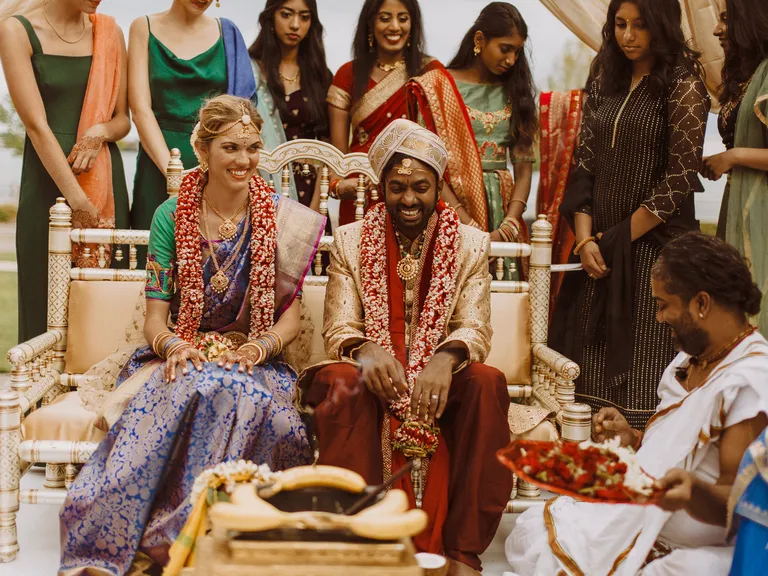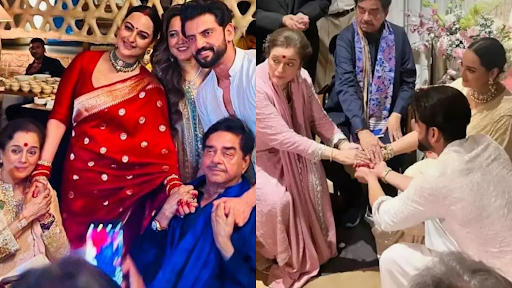Introduction
As the world becomes increasingly globalized, intercultural marriages are becoming more common. With the rise of international relationships and migration, couples from different cultural backgrounds are coming together.
This brings up unique traditions, customs, and values with them. While this can be a beautiful and enriching experience, it can also present challenges.
Let’s explore the importance of handling intercultural marriages and provide practical tips to help couples build a stronger bond.

1. Understanding the Benefits
Intercultural marriages offer a rich tapestry of benefits that extend far beyond the immediate relationship. Here’s a more detailed look at each advantage:
Exposing Your Partner to New Customs and Traditions:
- Cultural Exchange: Through intercultural marriage, partners have the opportunity to immerse themselves in each other’s cultural practices. This can include celebrating different holidays, participating in unique rituals, and exploring diverse cuisines. Such experiences can deepen mutual respect and appreciation for each other’s backgrounds.
- Learning and Growth: Engaging with new traditions can be enlightening and educational. Partners may develop new skills or interests, such as learning a new language or mastering traditional crafts, enriching their lives in unexpected ways.
Broadening Your Perspective and Worldview:
- Increased Empathy: Exposure to different cultures helps partners understand and empathize with diverse perspectives. This can lead to greater tolerance and open-mindedness in daily life.
- Enhanced Problem-Solving Skills: Navigating cultural differences requires creative problem-solving and adaptability, skills that can translate into other areas of life and work.

Creating a More Diverse and Vibrant Family:
- Rich Cultural Heritage: Children from intercultural marriages benefit from a blend of traditions, languages, and values, creating a unique and enriched family culture. This diversity can foster a sense of pride and identity.
- Broadened Social Networks: Families formed through intercultural marriages often have a wider social circle, exposing children to a variety of perspectives and experiences that can enhance their social skills and understanding of the world.

Strengthening Your Relationship Through Shared Experiences:
- Resilience and Adaptability: Navigating cultural differences can build resilience and adaptability in a relationship. Overcoming challenges together strengthens the bond between partners and fosters a deeper sense of teamwork.
- Shared Learning Journey: The process of learning about each other’s cultures can be a shared adventure that deepens intimacy and understanding. The journey of exploration and discovery can be a significant bonding experience.

Challenges to Overcome
Intercultural marriages, while rich in benefits, also come with their own set of unique challenges. Here’s a more detailed exploration of these potential hurdles:
1.Language Barriers:
- Communication Difficulties: If partners speak different native languages, misunderstandings can arise, leading to frustration and potential conflict. Nuances, idiomatic expressions, and emotional subtleties may be lost in translation.
- Integration Challenges: Language barriers can affect not just the couple but also their ability to engage fully with each other’s families and communities, potentially creating feelings of isolation or exclusion.
2.Cultural Differences in communication styles:
- Varied Expectations: Different cultures have distinct norms for communication, including how directly or indirectly one expresses thoughts and feelings. This can lead to misinterpretations and frustrations.
- Conflict Resolution: approaches to resolving disagreements can vary widely. Some cultures may favor open confrontation, while others might prefer to avoid direct conflict, which can create tension and hinder effective problem-solving.
3.Different Expectations Around Household Chores and Finances:
- Divergent Norms: Cultural backgrounds often shape expectations regarding household responsibilities and financial management. What one partner views as fair might be perceived differently by the other, leading to disagreements and potential resentment.
- Negotiation and Compromise: Reaching a mutual understanding on these issues requires open dialogue and negotiation. Differences in priorities or values around money and domestic duties can necessitate ongoing adjustments and compromises.
4.Family Conflicts and Generational Differences:
- Acceptance and Integration: Intercultural marriages might face challenges in gaining acceptance from extended family members, especially if there are deeply held cultural or traditional beliefs. This can lead to family tensions and conflicts.
- Generational Gaps: Differences in cultural attitudes between generations within a family can exacerbate misunderstandings. Younger couples may have different views on cultural practices compared to older family members, leading to potential friction and conflicting expectations.

Practical Tips for Navigating Intercultural Marriages
- Communication is Key: Communication is essential in any marriage. However, it’s particularly crucial in intercultural marriages. Make an effort to understand each other’s languages, customs, and values. Practice active listening, ask questions, and clarify any misunderstandings.
- Respect Each Other’s Differences: Accept each other’s cultural differences and avoid imposing your own culture on your partner. Respect each other’s traditions, holidays, and celebrations.
- Find Common Ground: Identify shared values and interests that bring you together. Focus on building a strong foundation of trust, love, and respect.
- Seek Support: Build a support network of friends, family, or a therapist who understands the challenges of intercultural marriages.
- Learn Each Other’s Language: Take language classes together or practice speaking each other’s native language at home.

- Celebrate each other’s holidays: Participate in each other’s cultural celebrations and traditions to show respect and appreciation.
- Be Patient: Understand that cultural differences take time to adjust to. Be patient with each other and remember that it’s okay to make mistakes.
- Foster Open Communication with Your Family: Communicate openly with your partner’s family about your relationship and cultural differences.
- Be open-minded: Approach cultural differences with an open mind and a willingness to learn.
- Flexible: Be flexible when faced with cultural differences or misunderstandings.

Real-Life Examples
A Japanese woman married an American man who wanted to adopt his family’s traditional Christmas celebration. She compromised by participating in the celebration while also introducing him to her cultural traditions.
A couple from different African countries learned each other’s languages and incorporated traditional dishes into their weekly meal routine.
Conclusion
Handling intercultural marriages requires effort, patience, and understanding. By following these practical tips, couples can build a stronger bond and create a more harmonious home. Remember that every marriage is unique. It’s essential to approach each relationship with an open mind and a willingness to learn from each other. With love, respect, and commitment, intercultural marriages can thrive.

